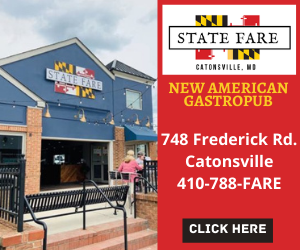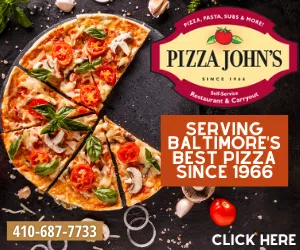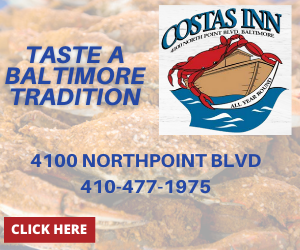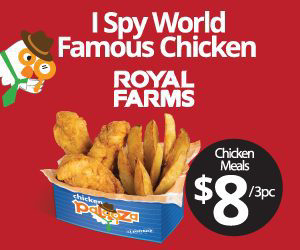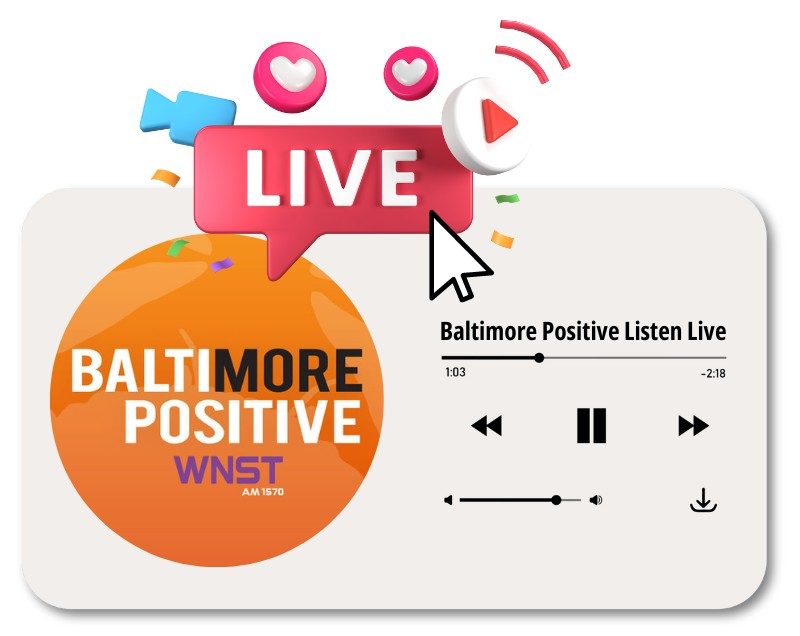Kidney transplant recipient and survivor Vaunita Goodman talks transplant, her new second life, love of sailing and the value of National Kidney Foundation Serving Maryland and Delaware at State Fare in Catonsville on “A Cup Of Soup Or Bowl Week” for The Maryland Food Bank.
SUMMARY KEYWORDS
kidney, national kidney foundation, day, maryland, community, dialysis, chronic kidney disease, feel, transplant, canned goods, good, recipient, years, wife, life, germany, food, today, match, family
SPEAKERS
Nestor J. Aparicio, Vaunita Goodman
Nestor J. Aparicio 00:00
It is day four of our journey. We’re getting up on the final hours to five o’clock today. We are in Catonsville we’re doing all this for the Maryland Food Bank. Lots folks have brought some canned goods and have been some donations. We had Carmen del Cueto, begin the day here. And we’ll be doing this finally on Friday and hopefully again next year. It’s been such a successful week talking to so many inspirational people and cool people across so many lines of charity and, and I love when we get survivors because I go to bed with one every night and I wake up next to one every day. Vani Goodman is here on behalf of the N KF I’ve done a whole lot of sante and National Kidney Foundation. How are you? Good day?
Vaunita Goodman 00:42
Very well.
Nestor J. Aparicio 00:43
It’s a pleasure to have you on and pleasure. KEITH RICHARDS would often say, it’s good to be here. It’s good to be anywhere, you know, and I always say that to my wife. You know, she’s a two time bone marrow transplant survivor. She’s coming up on her 10 year anniversary first diagnosis. And so I live with a miracle man in Germany saved your life with bone marrow. We didn’t know what leukemia was, or any of that stuff. And I know I have kidneys. I know that can be donated. I know someone could save my life. I’ve met a few folks like yourself that have been in the unfortunate circumstance of needing an organization like the National Kidney Foundation. I think that’s what you’re here doing. Right? Yes. How are you?
Vaunita Goodman 01:24
I’m very well, you
Nestor J. Aparicio 01:25
are a recipient, right? I am. How many years ago? Give us your story. So
Vaunita Goodman 01:30
last month, thank you. Last month, I actually celebrated three years post kidney transplant.
Nestor J. Aparicio 01:38
Congratulations. Well,
Vaunita Goodman 01:40
thank you so much. And I
Nestor J. Aparicio 01:41
look as good as you do after kidney transplant. I mean, come on. I think so. Well, my wife same thing. Me she went through her bald face and are getting she’s beautiful. And she’s bald. And then she came back to life. And it was like, like a tree. It was like it just bloomed. You know?
Vaunita Goodman 01:55
So happy to hear that.
Nestor J. Aparicio 01:58
Background. Where are you from
Vaunita Goodman 01:59
and stuff. So my father’s family’s from the Caribbean? Yeah, Hispaniola, Dominican Republic and Haiti. My mother’s family origin is England as well as the United States. So speaking of Germany, I was raised in Germany as a child. So be German. No, I don’t fancy French.
Nestor J. Aparicio 02:21
You must have been on the on the on the west side of Germany toward France. I don’t have I
Vaunita Goodman 02:24
Well, from my growing up and just being exposed to so many people, you know, and seeing many people of different nationalities and cultures speaking Russian, German, Portuguese way. Yeah,
Nestor J. Aparicio 02:38
that’s right. Yeah, it was that way. I didn’t hear other languages on the street. When I moved into downtown Baltimore, 20 years ago. I think the longer you’re here, the more integrated we become just in a general sense, you know, for languages being spoken and the slight lilt of an accent for you. That feels British but felt more Caribbean to me, I would have, I would have maybe made your Bahamian or Jamaican, or somewhere along that way. It probably was just French and English for you
Vaunita Goodman 03:08
to sprint in English right now.
Nestor J. Aparicio 03:10
Maybe, right? Yeah,
Vaunita Goodman 03:11
that’s the Haitian side. That’s the French influence. That’s the, you know, just the curiosity for people and culture and language. Yes. All
Nestor J. Aparicio 03:21
right. So you’ve got a story that’s going to inspire us, I have no doubt because someone saved your life. And that’s why you’re here today, and you’re trying to save other people’s lives.
Vaunita Goodman 03:30
Yes, so I’m here to speak about National Kidney month. I’m also here to speak about my own personal story. I was diagnosed with chronic kidney disease some years ago, and it ended up escalating to chronic kidney failure. So when you’re at that level, you must go on dialysis. And similar to what I’m here to share now is like a story of how the kidney care community is reaching for more empowerment amongst the population in order to educate them but also have them educate and care for themselves. Because worldwide you know, 700 million to 1 billion people are affected with chronic kidney disease. So
Nestor J. Aparicio 04:16
so your diagnosis of chronic kidney disease you’re at some point going to new transplant that at some point this is it will become a deteriorating thing. No
Vaunita Goodman 04:26
that’s not necessarily so which is lovely you can be rehabilitated
Nestor J. Aparicio 04:30
are fixed, I don’t think they’re fixed. That’s what’s in my way can you fix it? I
Vaunita Goodman 04:37
you can maintain a certain level. You can make better health choices, environmental and social choices, especially amongst the cultural communities, you know, with cultural standards, maybe a work ethic that is outside of the American standard of work. work, you know, so just coming from these mixed backgrounds, food choices, stress levels, family,
Nestor J. Aparicio 05:08
when you when you were diagnosed right, like you were hoping that it wouldn’t be worse, right? And I was hoping
Vaunita Goodman 05:15
it wouldn’t be worse, but then I was also, you know, not doing the best with taking care of myself, honestly. All right. So
Nestor J. Aparicio 05:23
you’re being you’re being candid, I’m being candid
Vaunita Goodman 05:25
here too. Because people
Nestor J. Aparicio 05:28
with lung cancer, then Hopkins, we’re still smoking. So like, you’re not I mean, yeah, I don’t want to be that knucklehead. But, you know, I mean, we all make a few bad choices now. And again, I would think that if at this point, I’m 55. So I’ve made me view it differently than if I were 25. And thinking like, I’m immortal, right? Well, immortal for a limited time, right? At some point, we have to take care of ourselves.
Vaunita Goodman 05:48
And that was the point I was young in my late 20s. And I just was like, Oh, I’ll be okay. I really, it was lack of education. And that now in 2024, and most especially in the past few years, the kidney care community has shifted toward a value based system. And so a value based system for kidney care is empowering with education, it is reaching across barriers, and being more inclusive, of course, it’s celebrating diversity, you know, so going into some of the communities that are lesser access by the medical community, those who may have less time or less resources to dedicate to actually educating themselves, their family members taking care of themselves, because they are living in a certain environment. And that was me, I was just working hard, playing hard and not aware of actually what level of chronic kidney disease I had.
Nestor J. Aparicio 06:48
Playing hard. What are you doing that was wrong? What? Drinking eat, we were eating? Okay, go ahead. Here we go. Go ahead. So I don’t do this, right, sure.
Vaunita Goodman 07:04
So I wasn’t drinking, I’m not a drinker. But I was I work in the arts community, I still do. So the whole idea of being an activist and advocate, you know, it can it can go overboard because I wasn’t caring for myself. So I’m advocating for other people, as I do now with the chronic kidney disease community, but from a different space of being educated. And from Soul education, right, having to experience it go through all those, those phases similar to like your wife, my hair being gone negative body image, and depression, honestly. So depression affects up to 60% of the chronic kidney disease community. And so with that being said, heavy burden is a heavy, heavy
Nestor J. Aparicio 07:52
burden. It really is. I mean, any illness is a heavy burden. Yes. So you were diagnosed and then when did it deteriorate? And clearly, I mean, you look beautiful now and healthy now. But I’m, my wife does too. But we put pictures up that nobody knows what that’s like to go through it. I mean, my wife spent 155 nights in the hospital comas. diabetic coma, is that different crazy stuff that happened to her neutropenic Ed, you know, liquid diet, all of that. The bounce back from that? What was the process for you? When they said, Alright, you’re gonna die. If you don’t have a kidney transplant, you’re on dialysis, we need to get you we need to get you fixed. And then you pray for someone to donate to you. Correct. And, and you need a perfect match. Like my wife needed to match. Yeah.
Vaunita Goodman 08:40
i That’s a great question. So my process was seeing the world as much as I had seen, right, living and experiencing a certain way of life. I said, Okay, if this is how I have to live, I’m going to live it the best way possible. I know what to eat. Now I know where to go. I know what to do. So I actually started sailing. I got into the sport of sailing. So I started going down to the water. I didn’t have any money to join the Club. I just would sit on the dock and watch people go by just Annapolis. This is in downtown Maryland. All right, yeah, I would go and just sit I live in the downtown area I would walk down there to to deal with my depression. So I spent a lot of time walking. I spent a lot of time just observing my environment and getting in touch with what I was feeling the guilt, the shame of allowing myself to deteriorate to that level. I was on hemo dialysis, so that’s using the blood and I was also on peritoneal dialysis that’s using the fluids within the peritoneum that’s in your stomach. So I was on the machine 12 hours a day. I had a lot of time to think and a lot of time to process but I also had a lot of time to work on. Okay, what can I do to change my situation? What power do I have my cases 16 assists this was in 2016 26 years ago. Yeah, you’re right on you.
Nestor J. Aparicio 10:05
Beautiful, healthy and beautiful. So, so your transplant was when
Vaunita Goodman 10:11
my transplant was 2021. Wow.
Nestor J. Aparicio 10:14
Yeah. So you had five years of waiting?
Vaunita Goodman 10:18
Yeah, four and a half years on dialysis. And then I had the transplant, believing
Nestor J. Aparicio 10:23
that someone would come along. You did not have a match.
Vaunita Goodman 10:27
I didn’t have a match or wait. You were awaiting. I was waiting. My family tested nobody match and guess who donated to me a sailor from the west coast. A fellow sailor? I don’t know this woman. I do know her now. You know her? No, I didn’t know her.
Nestor J. Aparicio 10:41
And when did you meet her?
Vaunita Goodman 10:43
I met her the two or three days after we had had our life saving operation. Same hospital right. Same hospital hospital was this. I know. I know. A Fairfax. Alright. Fairfax,
Nestor J. Aparicio 10:53
Virginia. Oh, yeah. I have a friend who gave a kidney in Boston and flew there and stayed and and saved her life as well. So yeah, I don’t know a whole lot of recipients. I know two donors. Now. I know a recipient. Yeah, I have another. Yes. It is our I guess I have some notes here from Karen. Thank you, Karen. For senator, how can we help you to National Kidney Foundation. I’ve done sante. I’ve done some events, fundraising, events, awareness. I’ve had folks like you on talking about their journey. But this is a big month, right. coming
Vaunita Goodman 11:27
up in March. March is on March 14, we celebrate National Kidney Awareness Day. But the month of March or March, we’re celebrating National Kidney month. And with that we are just focusing on again, kidney Care Education focusing on ways to show people that we’re making advances in the medical area where are supplying resources for people who may have limited income, who need transportation to dialysis who need rental insurance or rental support, who also need a community and the National Kidney Foundation, which serves Maryland as well as Delaware is here to do that. And I’m doing my best to spread the word. So sante is one of our other events. All right, I’ll come up to that. Oh, yes, it is divine. And it I went there, I asked to volunteer because I was like, Oh, the food looks great. I was looking at the at the website, and it came to me and it was actually the year I received my transplant. So I told them my story. And they said, Sure, come down. And from there. I’ve been volunteering ever since. So 2021 was my first National Kidney Foundation volunteer experience,
Nestor J. Aparicio 12:49
take you to feel well we’ll use your transplant. You’re in the hospital, you do the thing and they tell you eight weeks, eight months, two years, you feel 100% normal now three years later,
Vaunita Goodman 13:00
I don’t feel 100% normal actually. Wow, I don’t. There’s still you know, there’s something new there. So when they give you a kidney transplant, they don’t take out your other kidneys. People think that oh, you know, I have three kidneys. Okay, I have two natives, which I’m born with. And then you have a transplanted kidney to the to still function or no, they are not functioning at their capacity, they actually started to shrink. Okay, they they do function. Okay. All right. So yeah, there’s something new there. And sometimes that even if anyone else has had some major surgery, I feel it
Nestor J. Aparicio 13:39
back and knee replacements and like, what’s it like to have the replacement in there? You know, yeah, like I’m missing a fingers. Everybody thinks that’s weird. But talking about things that are different than other people, especially when it’s someone else’s, right, like, and you got to meet this person, my wife. So I’m actually sitting on the seat cushion. My wife had her life saved by guy in Germany who loves football. And she took him to the football game. And this is the seat cushion from Frankfurt from Germany. Oh, yeah. So it’s even in German bank here. So my wife gave me this because my back’s screwed up. So I’m sitting on this each and every day here, but she spends time with her donor they travel and she was the best person in his wedding virtually because it happened during the plague. So the over the three years have you seen your donor again?
Vaunita Goodman 14:27
Yes, she’s we both grown. She’s
Nestor J. Aparicio 14:30
special.
Vaunita Goodman 14:31
Let’s start with she’s a special person. She’s a sailor, and a sailor and now she’s a sailor, she grew up sailing, she asked me how did you get into sailing? I’ve never seen someone who looks like us sailing, you know, so competitively. And I’m like, that’s another story. But she’s, she’s really open and honest with me. We’re just straightforward. She wanted to donate her kidney to a woman of color. Which brings us to the theme of the National Kidney month which is increasing diversity and income lusion and health equity for all. So we’re really in a lovely shift. She is definitely part of that shift. She is we traveled together we go, we spend a lot of time outdoors. She travels the world. We haven’t done that together. But now I’m inspired.
Nestor J. Aparicio 15:19
Well my wife wants to do the safari with Niels because they that’s their bucket list. That’s their. That’s their number one for both of them. So I’m like, Yeah, I should do that together. I’ll watch the cat. Yeah, but I don’t want to go on safari. But like, you know, I love my cat and they’re gonna go for three weeks. I’m gonna sit back and wait for the pictures of the videos. You know,
Vaunita Goodman 15:35
it’s a bond unlike anything else. I don’t know how to even describe it when I
Nestor J. Aparicio 15:41
you know, I’m like, because they look like yeah, you know? Yeah, they’re there. They were DNA matches. So they’re kind of related in some there before, you know, through pathology I guess right? Yeah. So I had to learn about all this so yeah, all this people like you here. We have a National Kidney Foundation. I need to wrap just because I got a whole bunch of people waiting in line. We cover everything about Martin Where should people go? What can they do? So
Vaunita Goodman 16:06
please visit the kidney Maryland kidney Md dot o RG. For any information about what’s going on in Maryland for Asante it will be on may or may it may 8 may
Nestor J. Aparicio 16:24
put that day they invite me every year. Yeah, you know, I’ve been the giving the award for the food. They invite me to be the tasting to eat everything and then you pick the best thing. I’ve had delicious food. They’re no good dancing. It’s been a real it’s a beautiful event. Is it at the visionary arts store. Now
Vaunita Goodman 16:40
it’s gonna be at the Baltimore Museum of industry. On the water, lovely place.
Nestor J. Aparicio 16:46
Down there a few months. They have an exhibit at the Museum of industry when you’re there I want you to see it. It’s the Bethlem steel where my father worked in the steel mill and they honor East Baltimore and the working men because the industry right to the museum industry. Yeah, great place, but they honor Bethlem steel right now they have a big exhibit. Thank you, Bethlehem, Bethlehem, Bethlehem steel, steel. All of our parents worked there. 70,000 employees back in the 60s and 70s Okay, there was a steel manufacturing plant that’s now Tradepoint Atlantic in the Sparrows Point area. Thank you not from around here. It’s okay. You can you can get but you can learn that’s
Vaunita Goodman 17:24
I’m learning exactly. See. All right, thank
Nestor J. Aparicio 17:27
you. That’s that’s the eighth of May. That is
Vaunita Goodman 17:30
the eighth of May 630 to 9:30pm. And don’t forget Sunday’s very very amazing event. It’s fun. There’s food there’s raffles and a silent auction
Nestor J. Aparicio 17:41
so look half as good as you I do my hair.
Vaunita Goodman 17:45
That’s right. That’ll be exciting. And we can celebrate your lovely wife to have her accomplished. Good
Nestor J. Aparicio 17:50
to eat you amazing we’re gonna do Yeah, she already told me like to eat I
Vaunita Goodman 17:57
look, one more thing Maryland kidney walk. Don’t forget about that. That’s coming up April. I mean, October UMBC at UMBC and it’s another great event that’s so supports kidney care, awareness.
Nestor J. Aparicio 18:11
That’s all folks. When I was doing this, I’m going to meet some cool new people funny to Goodman is my new friend. She is a kidney recipient. So we want to thank the National Kidney Foundation for all their work as well. I get all sorts of stuff. This reminds me of being at the Super Bowl because I’ve got paperwork for assuming Susan G komen here. I got cards from itinerants, they do autism. I got a card here from Adam Rosenberg. He does intervention and child abuse for a center of hope. We we have Thom Yorke here for the b&o Railroad Museum. I’m doing all sorts of things and we’re gonna continue on We sisters Academy, sisters Hope Academy. Bill Cole is going to come back in here I don’t even know what else I have happened. I know we’re given all the food away in an hour. Oh, I’m gonna cry in the four o’clock hour here. Babs is going to be here she is the LLS Leukemia Lymphoma Society Junior visionary. They’re trying to recruit me to be the man of the year. The visionary the year I’m not qualified for that. But Kira is running for junior visionary and I hear she’s beautiful. And her mother is a bone marrow transplant recipient so I’m getting to meet another miracle today. That’s two miracles one our whole bowl of soup is what we’re doing this for the Maryland Food Bank. By the way you didn’t feel like Oprah when I give these out and you can lottery ticket cheap 10 times the cash Maryland lottery folks pasted together. Everybody in the rooms got one of these right now. So I’m gonna go out Yeah, who wants somebody better wants money around here today. Pappus is our last chance to do this tomorrow. crabcake row, a cup of Super Bowl if you’re still in the air and kittens well before five dropped by we have canned goods. We have cool stuff we’re taking for the local food bank and I want to get this right at later next hour. Catonsville emergency assistance is getting all the canned goods from here today. And Caitlin Kirby is gonna come by it’s another Kirby three Kirby’s in one day. I don’t know. I’m gonna get Andrew Kirby on the phone, my old sportscaster bye Hey, I am Nestor we’re live we are in Catonsville I am losing my voice. We are in our 3140 hours of Marathon radiosonde good ish. We are wn sta and 1570, Towson Baltimore. We never stop talking Baltimore positive









